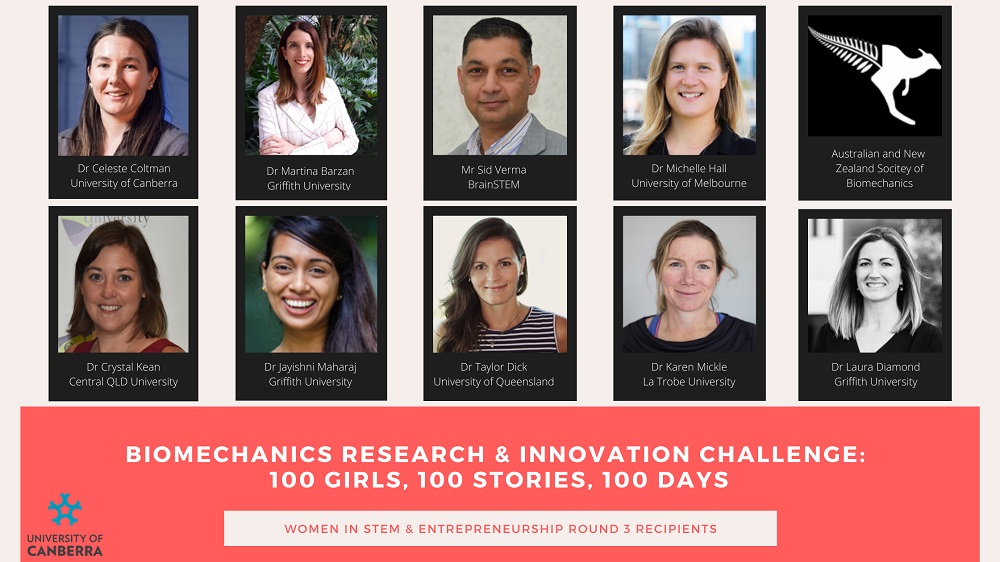Suzanne Lazaroo
16 June 2021: Targeting the two critical points at which the numbers of women in engineering pathways and careers dip the lowest, a University of Canberra project linking girls in high school with early career biomechanics mentors recently received a Women in STEM and Entrepreneurship funding boost of over $240,000 from the Federal Government.
Project team leader and University of Canberra Assistant Professor in Sport and Exercise Science Dr Celeste Coltman said that these critical points of female disengagement occur in high school and in the early career years – so the 100-day Biomechanics Research and Innovation Challenge (BRInC) will see 100 Australian high school girls from diverse backgrounds working with 25 early career female biomechanists.
“We’re looking to help build interest in and engagement with biomechanics – as a subdiscipline of engineering – among high school participants, while simultaneously creating an inclusive, supportive professional network of Australian women in biomechanics,” Dr Coltman said.
“In high school, significantly fewer girls select Year 11 and 12 STEM subjects, such as physics and maths, which means that they are ill-prepared to study engineering at the university level. And during the early career years, there is a significant decline in the number of women retained in faculty and management positions post-PhD.”
This then translates to a disproportionate number of women in STEM fields, especially engineering.
“Compared to boys, girls are 17 per cent less interested and 10 per cent less confident in STEM subjects, particularly engineering, where the confidence gap increases to 25 per cent,” Dr Coltman said.
“Research has shown that girls also consider engineering as the least important STEM topic for future employment. In tertiary education, just 15 per cent of those studying a bachelor’s degree in engineering are female. Only 18 per cent of academic staff in engineering faculties are women – with this declining to 9 per cent at the professorial level.

BRInC participants will attend a series of immersive workshops and masterclasses to build key STEM and life skills.
“The hands-on program will expose girls in Years 9 and 10 to the creative, applied field of biomechanics and increase their awareness of associated study, work and entrepreneurial opportunities,” Dr Coltman said. “They’ll be conducting their own biomechanics projects with the support and guidance of their mentors.”
“Concurrently, these mentors – early career biomechanists and industry representatives – will access training and support to develop their expertise as STEM mentors and future engineering leaders.”
Dr Coltman added that biomechanics, as a subdiscipline of engineering, was chosen as the program focus because of its highly applied nature, and the fact that it is able to improve the quality of people’s lives, which tends to resonate strongly with females.
The project team includes eight female early career researchers from the ACT, Victoria and Queensland across a diverse range of biomechanics fields. It is working with industry partner BrainSTEM, which runs STEM-based mentor programs for high school students.
BRInC has a strong emphasis on diversity. It will be delivered Australia-wide by mentors from diverse backgrounds, with at least eight higher education and industry partners, including regional and metropolitan institutions.
“Importantly, gender, race, ethnicity and class do not operate independently and to achieve diversity in STEM, strategies must target a diverse range of girls and women,” Dr Coltman said. “We will target Year 9 and 10 girls from regional and remote locations, and from low socio-economic public schools. Girls from culturally diverse backgrounds, Aboriginal and Torres Strait Islander students, and girls with a disability are encouraged to participate.”
Recruitment for the program will be conducted throughout this year; BRInC will run in Term 1 and 2 of 2022.


